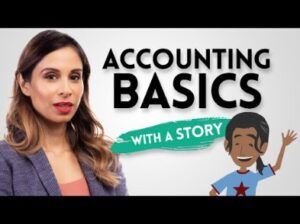If you set up your finances with accrual-basis accounting, you’ll record financial transactions when they occur, not when the money moves accounts. The financial statements which include the income statement, statement of changes in equity, balance sheet, statement of cash flow and notes are the end products of the accounting system. Keep a separate bank account for your personal and your business expenses. If you’re a solopreneur or independent contractor, chances are you’re responsible for everything, including the accounting.
To become a certified accountant and help small businesses and organizations with their accounting needs, you’ll need to qualify. That means getting a relevant degree and experience and taking the Certified Public Accountant (CPA) exam to advance your career. Consider the Online Masters of Accounting (iMSA) offered by the University of Illinois Urbana-Champaign. A master’s degree in accounting will help you satisfy the semester credit hours required to become a licensed CPA. It’s important to have a sound business case when you are applying for a business loan to increase the likelihood that a bank or other lender will approve your loan and offer a good rate.
When should you hire a full-time bookkeeper or accountant?
You can learn a lot about how to do accounting for small businesses just from browsing the internet. But nothing beats up-front, personalized advice from a certified professional—in this case, a bookkeeper, accountant, or CPA. Bookkeepers, accountants, and CPAs all bring something different to the table. Adjusting entries are made for accrual of income and expenses, depreciation, allowances, deferrals and prepayments. The first step of the accounting process involves the preparation of source documents.
By knowing what you need to do and getting some guidance on how to do those things, you can be performing accounting tasks for your business in no time. If you’re using tax filing software, you may have the option to organize and store receipts electronically. Minimum deposit requirements can depend on the type of business account and whether current balance vs statement balance you’re opening the account at a traditional bank, credit union, or online bank.
If you are self-employed, you will need to pay federal self-employment tax. This is essentially FICA and Medicare, only your payment covers both a withholding from your wage and the matching contribution from your company. If you have employees, you’ll have to pay Federal Insurance Contributions Act (FICA).
Should you choose single-entry or double-entry bookkeeping?
If not, the trial balance contains errors which need to be located and rectified with correcting entries. It’s important to note that some errors may exist despite the debits equaling credits, such as errors caused by double posting or due to the omission of entries. If you absolutely want to be connected with hundreds of apps that offer hundreds of tasks, Xero may be right for you. A great fit for e-commerce startups and small businesses, Xero has added a ton of features in recent years, and it offers excellent integration across the board. As a business owner, the thought of doing accounting for your business may be more intimidating than the prospect of owning a business.
An accountant can also ensure greater accuracy and may be more knowledgeable about the tax code and reporting requirements. In addition, if your business owes more than $1,000 in taxes during the year, you are expected to make estimated tax payments four times annually. Everyone from your bookkeeper to your CPA and the IRS needs you to keep documents proving the income, credits, and deductions you put on your tax return. Bookkeeping is the process of recording daily transactions in a consistent way, and is a key component to building long-term financial success and having updated financial data. Depending on your needs, opening a money market account for savings might be a smart move. You’ll be required to maintain a higher minimum amount in the account, and you may have accumulated depreciation definition limited check-writing options.
If you decide to extend credit to customers, you will need a consistent system of creating and sending invoices. Andy Smith is a Certified Financial Planner (CFP®), licensed realtor and educator with over 35 years of diverse financial management experience. He is an expert on personal finance, corporate finance and real estate and has assisted thousands of clients in meeting their financial goals over his career.
• Set Up Separate Bank Accounts
Open a business bank account and business credit card and run all your business’s income and expenses through those accounts rather than your personal checking account or credit card. A separate bank account makes it much easier to have a clean record of business transactions. Basic small business bookkeeping includes tracking your expenses, recording the transactions, and reconciling your business bank statements. It can also include putting together the three key financial statements—the income statement, what is notes payable balance sheet, and cash flow statement.
- And it will be easier to work with a bookkeeper and an accountant, as well as any potential investors who come knocking when it’s time for you to sell.
- To avoid confusion during tax season, set up a separate bank account for your business.
- With the help of good software, accounting for a small business can be much easier than you think.
- Just like a regular bank, every payment provider will have a different fee structure.
Most invoices are due within 30 days, noted as “Net 30” at the bottom of your invoice. Without a due date, you will have more trouble forecasting monthly revenue. Learners are advised to conduct additional research to ensure that courses and other credentials pursued meet their personal, professional, and financial goals.


